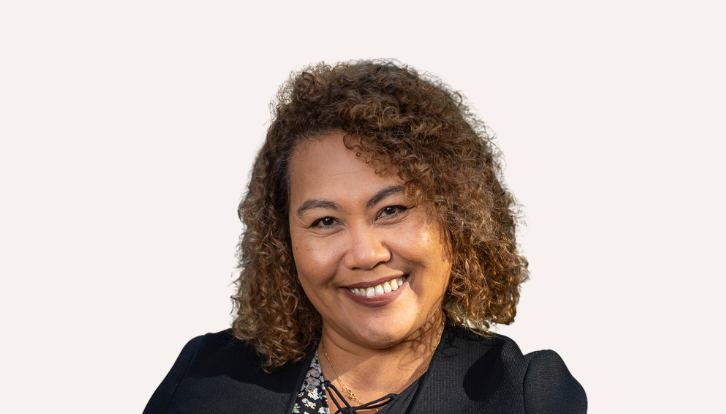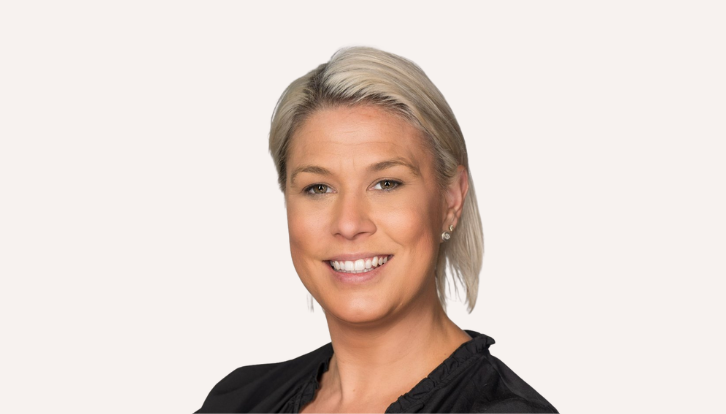On 24 September, DCA was honoured to host Karen Mundine, CEO of Reconciliation Australia, at a recent First Nations Insights event, sponsored by ANZ, where she shared insights from the 2024 Australian Reconciliation Barometer (ARB) and the 2024 Workplace Reconciliation Barometer (WRB). Karen’s update was followed by a panel discussion about the next steps organisations must take for meaningful reconciliation.
Aunty Donna Ingram provided a warm and informative Welcome to Country which was followed by a presentation on findings from the ARB and WRB. The ARB is a national research study, undertaken every two years by Reconciliation Australia since 2008. It’s the only survey in Australia that measures the progress of reconciliation between Aboriginal and Torres Strait Islander people and non-Indigenous Australians. The WRB is also conducted every two years among employees of Reconciliation Action Plan (RAP) organisations.
Karen began by recognising the current challenges weighing on Australian society, such as the cost of living, housing, and environmental concerns, and that in the face of growing uncertainty, social and cultural issues tend to take a back seat. Despite concerning trends, the Barometer shows that progress is being made, and the data provides hope and incentive for the future.
A series of snapshots on Reconciliation Australia’s website summarise the findings from the ARB. They show that racism remains an everyday reality for Aboriginal and Torres Strait Islander people with experiences of racism increasing over the past 10 years and causing lasting harm. Verbal and social media abuse remain dominant, and many Aboriginal and Torres Strait Islander people still find themselves facing barriers when renting or buying a property, being refused entry into a venue, and on the receiving end of physical violence.
Despite these grim findings, two groups have emerged as being key to advancing reconciliation: multicultural Australians and young Australians. These two groups reported that they believe more strongly in the importance of relationships in building unity and want to help advance reconciliation. Multicultural Australians are more willing to participate in truth-telling activities and events. As future leaders, young Australians are ready to improve relationships and work towards unity with 18- to 24-year-olds being the strongest cohort for reconciliation across all demographics. Importantly, younger people understand the impact of colonisation on First Nations people. This is key to addressing behavioural change and action.
“Younger people are more engaged and more knowledgeable than ever before. We’ve got this growing cohort of multicultural Australians who also are engaging in these issues and topics where perhaps they haven’t in the past. And there’s lots of crossovers and connections between First Nations peoples and multicultural Australians as well, in terms of experiences of racism and discrimination. They’re as much allies for us in our shared experiences as they are keen and interested in learning about the First Peoples of this country to help them understand what it truly means to be Australian and not have that shaped by a British or non-Indigenous kind of perspective.” – Karen Mundine
The WRB found that employees in RAP organisations consistently have more positive views towards reconciliation and truth-telling compared to the general community. With 5.5 million Australians working or studying in organisations with a RAP, these findings provide hope for the future that even in a disruptive and changing world, engagement with reconciliation is still important for Australians.
Karen Mundine’s presentation was followed by a panel moderated by Professor Peter Anderson, Pro Vice-Chancellor Indigenous at the University of New England. The panel welcomed Dempsey Bloom, Know Your Customer Team Leader and Co-chair of the ANZ Reconciliation Network at ANZ and Sara Stuart, Head of Indigenous Affairs at Coles.
The panel discussed ways of measuring success and confronting challenges, fostering relationships with communities and senior leaders, ensuring partnerships with Indigenous-led communities, showing continued support for reconciliation in business communities, and finding lessons and opportunities to learn from the reconciliation process.
One of the key themes that emerged during the discussion was that listening to First Nations employees and communities is crucial to truth-telling and reconciliation.
“It’s only when you truly, deeply listen that you actually hear the parable or the lesson that’s being imparted to you.” – Karen Mundine

Dempsey Bloom spoke about how ANZ works to hold space for employees to ensure that they are involved in the discussion and aren’t backing down from the difficult conversations that need to be had. Dempsey encouraged executives and leaders to sit with First Nations employees to just listen. He also described the many support systems that ANZ has in place for First Nations employees, including mandatory cultural awareness training for their employees and creating a new role of First Nations Partnership Manager to help build strategic relationships.
“We know that reconciliation is not something that’s solved overnight. We knew that from the [referendum] result a couple of years ago, that there was still hard work that needed to be done. It’s not a ticker box exercise. It’s about building the fundamentals.” – Dempsey Bloom

Sara Stuart spoke of the important role that Coles plays, not just in supporting their employees, but also in the communities that they serve. This includes finding ways to remove barriers to becoming a Coles supplier, designing employment programs for Indigenous youth, creating pipelines for First Nations talent, creating spaces to hear from Elders, and embracing truth-telling.
“This would then mean that we could embed our RAP priorities, to not only just be sitting in an Indigenous Affairs team, but into the broader business conversation and getting it into BAU (business as usual), where it should be.” – Sara Stuart

Final takeaways from the discussion provided tips on what individuals and organisations can do to promote reconciliation, including:
- Building trust, listening deeply, and advocating to help shift the mindset and create systems of support
- Finding ways to engage those who have not yet started the journey
- Challenging yourself as an individual. There’s always more that can be learned and when individuals are better equipped and prepared, they can bring others along with them on the journey.
DCA members can view the full presentation and panel discussion on the event page.
Additional resources
Bridging Now to Next: The State of Reconciliation in Australia event page
Reconciliation Australia
Australian Reconciliation Barometer
DCA’s Aboriginal and Torres Strait Islander Peoples resource pages
From acknowledgment to action: How organisations can support truth-telling
“It’s not about box ticking”: Abbey Wright on business’ role in genuine reconciliation and truth-telling
